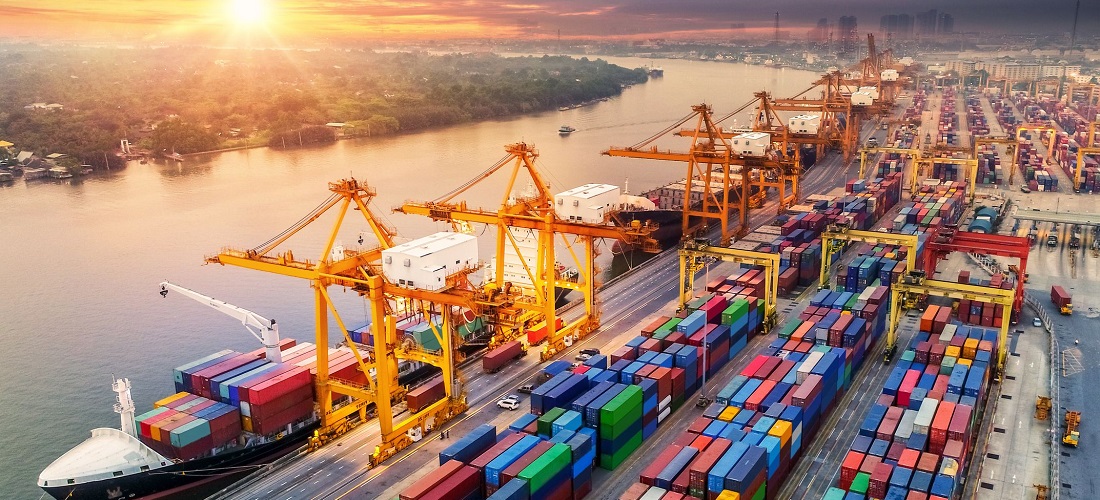
Brazil Exports US$15.6 Billion in Agribusiness Products in March
Apr, 11, 2025 Posted by Denise VileraWeek 202515
In March 2025, Brazil recorded the second-highest agribusiness export value for the month since the beginning of the historical series. Agribusiness exports totaled US$15.6 billion, representing a 12.5% increase compared to last year. The sector accounted for 53.6% of all Brazilian exports that month. This growth was mainly driven by a 10.2% increase in export volumes, while international prices rose by 2.1%.
According to Agriculture and Livestock Minister Carlos Fávaro, Brazilian agribusiness has been consolidating itself as one of the main engines of the national economy. “These numbers confirm that we are promoting agribusiness growth with responsibility, sustainability, and a focus on new markets and opportunities for higher value-added products,” the minister stated.
Among the main products exported in March were soybeans (US$5.7 billion, +7%), green coffee (US$1.4 billion, +92.7%), fresh beef (US$1.1 billion, +40.1%), cellulose (US$988 million, +25.4%), and fresh chicken meat (US$772.3 million, +9.6%).
See below a historical overview of Brazilian chicken exports starting from January 2022. The data is from DataLiner:
Brazilian Chicken Exports | JAN 2022 – FEB 2025 | TEUs
Source: DataLiner (click here to request a demo)
In addition to traditional products, the Brazilian government has been promoting opportunities in segments with strong growth potential. Through recent initiatives, items such as gelatin, soluble coffee, orange essential oil, black pepper, and pet food reached record export levels. They may gain greater prominence in the coming months, especially in markets in Asia, Europe, and North America.
In the first quarter of 2025, Brazilian agribusiness exports totaled US$37.8 billion, a 2.1% increase compared to the previous year—the highest value ever recorded. The sector’s trade surplus for the quarter was US$32.6 billion, up 2.1% from the same period in 2024. China, the European Union, and the United States remained the top destinations, accounting for over half of all sector exports. Asian countries such as Vietnam, Turkey, Bangladesh, and Indonesia also saw a significant increase in purchases of products like soybeans, cotton, cellulose, and meats.
The Secretary of Trade and International Relations at the Ministry of Agriculture (Mapa), Luís Rua, emphasized the government’s commitment to expanding the international presence of Brazilian products. “The March results show the strengthening of Brazilian agribusiness abroad amid rising global trade tensions and with a focus on global food security. Expanding our presence in niche markets with higher value-added products reflects a commercial strategy based on active listening to the needs of the productive sectors. By offering safe, high-quality, and competitive food, Brazil is consolidating itself as a reliable partner,” he said.
The expansion of non-traditional product exports and the opening of new markets—while maintaining or increasing domestic supply—significantly strengthens the Brazilian economy. This process encourages job and income generation, attracts foreign currency, diversifies trade partners, and reduces exposure to economic risks. It also adds value to national products, promotes investment in innovation and sustainability, and solidifies strategic international relations. In this way, Brazil expands its global presence and reinforces its competitiveness. These advances reflect the joint efforts of public and private sectors, focusing on market access, sanitary safety, and trade promotion.
Source: Compre Rural
-
Meat
Nov, 12, 2019
0
More Brazilian slaughterhouses receive authorization to export meat to China
-
Shipping
Jul, 29, 2021
0
Ship crew abandoned at the Port of Santos receive four months of back wages
-
Ports and Terminals
Aug, 14, 2024
0
BTP Terminal in Santos Completes Initial Phase of Multi-Billion Reais Upgrade
-
Other Cargo
Jun, 11, 2020
0
Footwear exports plunge 66% in May

